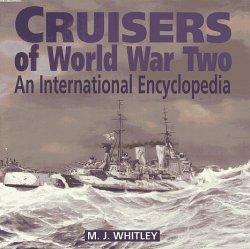The history of Texas is among the most colorful histories of all American states and territories. With its diverse population of Mexican, Mexican-American, Native American and Anglo-Saxon inhabitants, its culture is rich and varied. Spain first arrived in Mexico in 1519, and Nueva Mexico was part the vast territory known as New Spain. Spanish rule in Central and South America was very different from that of British rule in North America. Where the British saw each colony as a separate political entity to be governed more or less independently, Spain tended to govern its entire empire from the center. That tradition was passed on to the Mexican government once the Mexican revolution against Spain was complete, and virtually all of Mexico was governed from Mexico City. The individual provinces of Mexico, including the province of Coahuila, of which Tejas—Texas—was a part, had very little self-determination. That situation was challenged by the arrival of Americans who immigrated to Texas in order to obtain land grants being generously offered by the Mexican government.

Following the Louisiana Purchase of 1803, Americans began to look hungrily at the land just across their Southwest border. The Mexican government, following the lead of Spanish authorities, granted colonization rights to the American Moses Austin. In so doing they hoped to create a buffer territory against encroachment by land-hungry Americans. The Mexican government, in other words, decided to fight fire with fire. By allowing a limited number of American immigrants into Mexico under certain restrictions, they could prevent more Americans from simply seizing the territory.
Moses Austin died before his colonization project became a reality, but the mission was taken over by his son, Stephen F. Austin. In 1821 Stephen Austin brought
300 families across Sabine River to the region along the Brazos River, where the first American colony in Texas was established. In exchange for generous land grants, the Mexican government attached certain conditions to those grants. Each settler had to agree to become a Mexican citizen, to adopt the Roman Catholic religion, and to give up the practice of slavery.
Since the Texas colony was governed loosely, much as the early American colonies had been controlled by Great Britain, the Mexican government turned a blind eye to violations of the agreements. The status of Mexican citizenship changed very little in terms of the loyalties of the American settlers; they were Americans first, Mexicans second. As far as the Catholic religion was concerned, there were no Catholic priests in the province, and therefore attendance at confession and mass could not be demanded nor controlled in any way. As to slavery, the Mexican government was willing to accept a compromise in authorizing the practice of lifetime indentured servitude. The difference between that status and slavery was, of course, only technical, but it satisfied both sides. The Texans were also obliged to pay taxes to the Mexican government, but there were no tax collectors in the Texas province, so that point was also moot.
In other words, the situation of the Americans in Texas was similar to that of the American colonists on the east coast of North America in 1760. They were treated with benign neglect, and the Texans possessed a de facto sense of self rule if not outright independence. The men and women who came to Texas tended to be a rough and ready lot. Many who emigrated were of Scots-Irish descent from the Shenandoah and other regions west of the Appalachians. Adventurous American women learned that if they came to Mexico and married a Mexican citizen, they could gain very generous land grants and have significant rights to the titles. Thus a complex society emerged, a mixture of Mexican and American along with Comanche, Apache, Kiowa and other Indian tribes on the edges of the Texas colony. They developed a small but robust society.
President John Quincy Adams tried in 1825 to purchase as much of Texas as he could get from Mexico, without success. Henry Clay also worked on the issue while Secretary of State under Adams. President Jackson appointed Colonel Anthony Butler to continue negotiations
With Mexico in 1829. Jackson's minister, Anthony Butler, tried to bribe the Mexican government. Jackson called Butler a "scamp" but left him there. Mexico was insulted by American overtures, and the negotiations went nowhere.




 World History
World History









